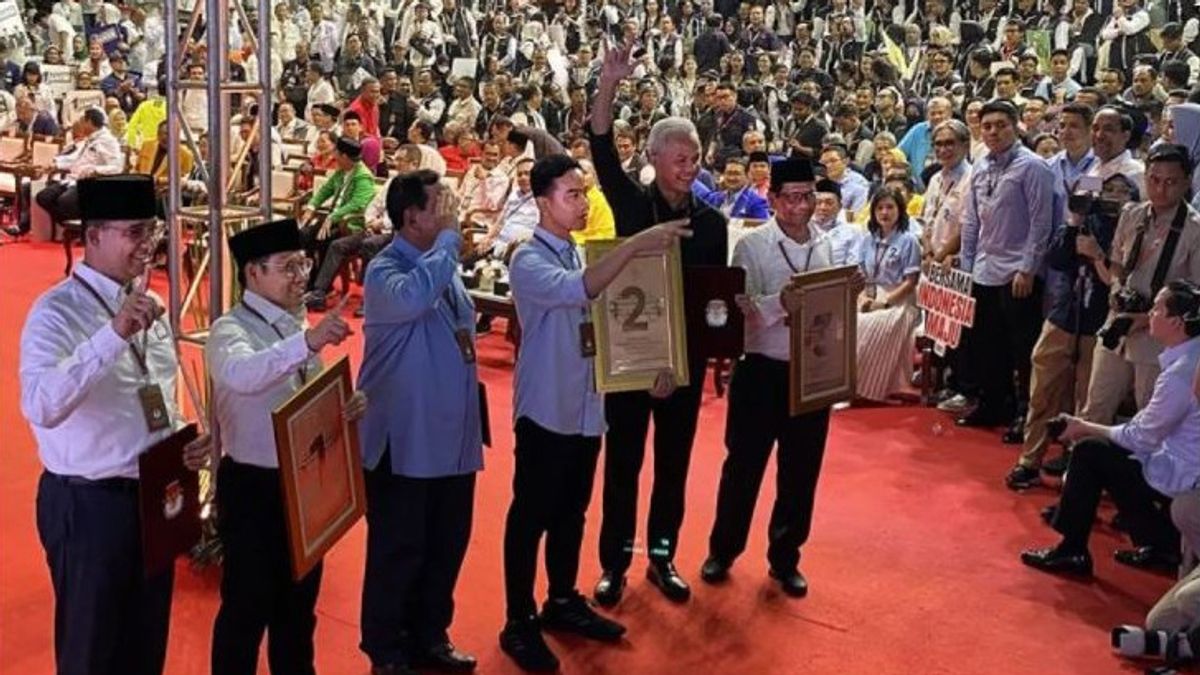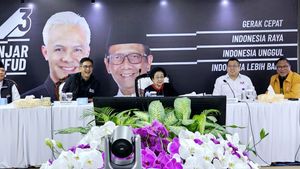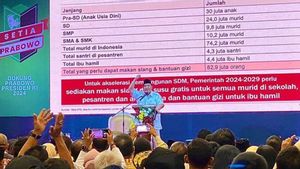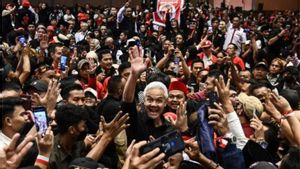JAKARTA In less than two months Indonesia will hold the 2024 General Election (Pemilu). Ahead of the five-year democratic party, the General Elections Commission (KPU) has determined that the campaign period will be held from November 28, 2023 to February 10, 2024. Environmentally friendly campaigns are now a challenge for the contestants who will fight next year.
Campaigns are almost always in the spotlight ahead of the elections, both presidential and legislative elections. It was during this period that the contestants were busy competing to attract voters in various ways.
How they attract the attention of voters is also varied. Starting from safaris around the region, to installing a number of campaign props such as banners, billboards, and other attributes. Unfortunately, during the campaign these contestants are more often indifferent to the impacts caused by these activities.
The campaign period often causes unrest from some people. The reason is that the election campaign often ignores the impact on the environment. One of them is the massive distribution of campaign props in various remote parts of the country, even though in the end it can end up in trash cans.
A member of the DKI Jakarta Bawaslu, Puadi said, the installation of campaign props is one of the campaign methods that campaign participants may carry out, it's just that the installation of this APK must be in accordance with the place determined by the KPU after coordinating with local governments.
"In addition, the installation of the APK must also not contain a ban as stipulated in Article 280 paragraph (1)," Puadi told VOI.
As we all know, during the campaign, politicians made massive distributions of campaign materials and props, such as banners, brochures, billboards, pamphlets, and others. But they often forget that most of these materials are not environmentally friendly.
It is common knowledge that campaign props made of plastic are not easily decomposed. Not to mention leaflets and pamphlets made of paper that are disposed of carelessly can cause environmental pollution, especially in urban areas.
The question that then always appears at every campaign time is where the unused props are after the campaign period is over. Because, almost surely the campaign props end up being trash because it is impossible to use it repeatedly for the next campaign.
Not only ending up in trash cans, campaign props are also often damaging the beauty of the environment. This can be seen from the large number of campaign props installed irregularly on the side of the road, and installed by attaching them to the trees.
So far, the KPU and the Election Supervisory Agency are considered not to have taken firm action against a number of violations that can be seen clearly. Even though violations related to the installation of campaign props can be punished.
As happened in Bekasi City on the first day of the 2024 General Election campaign. The Coordinator of the Bekasi City Bawaslu Data and Information Violation Division, Muhammad Sodikin, said that his party had found a number of posters and banners of legislative candidates stuck on trees on a number of protocol roads in Bekasi City.
Sodikin admitted that his party often urges political parties not to violate the provisions for installing campaign props. However, he emphasized that he could not remove it because the Satpol PP was allowed to remove it.
"Later we will make another appeal," said Sodikin, quoted by Tempo.
SEE ALSO:
The installation of campaign props has been regulated in Law number 7 of 2017 concerning Elections in articles 275 and 280. The regulation states that campaign materials should not be installed in government buildings or facilities, protocol roads, freeways, public facilities, parks, and trees.
Places of worship, hospitals or health care facilities, as well as buildings or school / universities are also those that must be sterile from campaign props.
"The installation of campaign props (APK) for elections found to violate the Regional Regulation 7/2014 concerning K3 can be given sanctions, in the form of minor crimes (tipiring) with imprisonment of 3 months and a fine of Rp. 50 million," said criminal law observer Masykur Isnan to VOI.
Another problem that arises from the campaign period is the emergence of plastic waste which results from political events. For example, holding an entertainment stage attended by thousands of people. In events like this often, if not always, leave the garbage from the visitors present.
Based on the results of research reports conducted by Net Zero Waste Management Consortium and Litbang Kompas, waste in six cities, namely Medan, Samarinda, Makassar, Denpasar, Surabaya, and DKI Jakarta is dominated by plastic packaging or fragments that are difficult to process, lack economic value, and are easily scattered.
The results show that various brands of plastic waste are the most waste with a total of 59,300 pieces. The second order is occupied by plastic rough as much as 43,597, and followed by a pack of instant noodle brands which reached 37,548 pieces. The waste of drinking water plastic cups from a number of brands is also among the most common.
One way to reduce the impact of campaigns on environmental damage is to carry out digital campaigns. Digital campaigns are believed to be able to reach voters appropriately and externally so that campaigns to introduce candidates can also be channeled.
Moreover, digital campaigns have the potential to reach young people of generation Z and millennials, which is the largest number of voters, reaching 56.45 percent of the total 204.8 million votes based on KPU data.
Digital campaigns using social media have also been mentioned by the National Coordinator of the Education and Teacher Association (P2G), Satriwan Salim. He once suggested that politicians use social media as a means of campaign, when the Constitutional Court (MK) allowed political campaigns in educational institutions.
Instead of disrupting teaching and learning activities in schools, according to Satriwan, presidential and legislative candidates can try new ways to use social media to attract the attention of novice voters.
Untuk menarik suara gen Z tidak memperlu kampanye di sekolah, karena ini cara yang konvensi. Gen Z sangat dekat dengan media sosial. Seharusnya ini menjadi challengingge untuk para calon bagaimana menarik perhatian siswa. Seharusnya mereka bisa memanfaatkan medsos, seperti Live IG misalnya untuk berdialog sehingga tidak mengganggu proses belajar di sekolah, kata Satriawan.
In political campaigns, it is often only focused on how to win the hearts of the people in order to occupy the number one seat in Indonesia, without considering environmental impacts. Whereas the principle of sustainability and preserving nature has become an issue that has been discussed by environmental activists in the past few years.
But it is important to remember that maintaining the environment is not only the responsibility of the government and politicians, who are busy displaying their best image. It is important to remember that the community also has a role to play in maintaining the environment.
The English, Chinese, Japanese, Arabic, and French versions are automatically generated by the AI. So there may still be inaccuracies in translating, please always see Indonesian as our main language. (system supported by DigitalSiber.id)
















